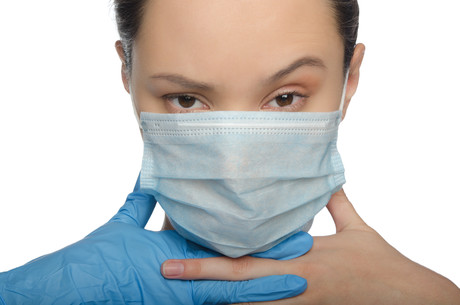Hand hygiene Q&A

Infection prevention and control is a vital component for all professionals working in the healthcare sector. The nursing profession makes up more than 50% of the health workforce in Australia and, as such, provides care in almost every setting. To get a more comprehensive perspective on what student nurses are learning about infection prevention and control in their educational content, we speak with Manager of Higher Education at the Australian College of Nursing Emma Woodhouse, RN GC Perioperative Nursing MLD MACN.
What are student nurses taught about infection control?
Students are provided a comprehensive overview of the importance of infection prevention and control within the workplace by examining issues related to legislation, quality, transmission and management of infections.
The risk of potential transmission between patients, staff and all personnel involved in the healthcare system are specific issues that are also examined by students in the unit of study, along with the analysis of principles of infection control and prevention at local and organisational levels in efforts to improve the process of achieving positive quality health outcomes.
Additionally, some of the themes and topics that are covered within their studies include:
- the progression of infection control;
- appropriate precautions;
- regulations, legislation, standards, policy and procedure;
- principles of cleaning, disinfection and sterilisation;
- risk assessment and management;
- communicable diseases;
- pathology;
- wound and/or surgical infections;
- occupational screening, vaccination and staff health.
Is there a difference between what they are supposed to be learning and what is actually in the workplace?
As with any evidence-based training there is a gap between theory and practice. During their studies, students are challenged to think critically and apply what they have learned in their practice setting, and this gap can be narrowed by the reinforcement of good practice and the implementation of sound quality management strategies.
How is the training reinforced in a real-world environment (ie, is there a practical component)?
The training — which is grounded in experiential learning theory — is reinforced as the students apply their knowledge to case scenarios in their assessment items.
Do you believe newly graduated nurses are well prepared for the workforce when it comes to infection control?
Yes, I do. The education provided to students is fundamental to good practice in the workplace. The challenge for all nurses and healthcare staff is to work with integrity when under time pressure and a demanding workload.
What else could be done to ensure they are well prepared (if they are not already)?
I think this is, again, about reinforcement and clinical education in the workplace. Nurses need to role model good behaviour and empower their patients to question basic hand hygiene.
Can you give examples of some of the assessment items that relate to infection control?
Students are given assessment items that include online discussions addressing state guidelines and ethical issues, an essay where students explore the effect of pathogens on primary and secondary care, and a discussion paper involving a significant breach of infection prevention and control.
Which areas of infection control do you think have changed the most, and how?
The environmental changes, immigration and globalisation will continue to affect the healthcare environment in regards to infection prevention and control. There is greater focus on prevention rather than cure including the use of vaccines for preventable diseases and lockdowns following influenza outbreaks.
Standard precautions and the implementation of the Australian Commission National Safety and Quality Health Standards within accreditation have also changed the healthcare environment. It will also be interesting to see the impact of antibacterial products on immunity.
Do you see any areas where infection control could be improved or updated for students entering their nursing studies?
On the whole, infection control is taught well within student nursing education; however, we need to continue to reinforce best practice and equip our nurses with a professional voice to be able to speak up when they see a breach in standard precautions.
Where do you see the future of infection control education heading?
I think it needs to start in primary schools, especially in areas of hand hygiene, and coughing and sneezing etiquette, so that it becomes second nature. Higher education will continue to explore research into infection prevention and control and to continue to take a global perspective on the effects of climate control, immigration and globalisation.

Pathways to proof: could this transcranial treatment ease chronic pain?
Australian researchers have published a 'roadmap' to prove clinical efficacy for a...
REDFEB highlights the impacts of chronic stress on the heart
February is Heart Research Australia's heart disease awareness month, REDFEB, and the effects...
Patients co-design invasive heart surgery monitoring clinical trial
Patients and their families have co-designed a clinical trial to determine if invasive devices...

![[New Zealand] Transform from Security Awareness to a Security Culture: A Vital Shift for SMB Healthcare — Webinar](https://d1v1e13ebw3o15.cloudfront.net/data/89856/wfmedia_thumb/..jpg)
![[Australia] Transform from Security Awareness to a Security Culture: A Vital Shift for SMB Healthcare — Webinar](https://d1v1e13ebw3o15.cloudfront.net/data/89855/wfmedia_thumb/..jpg)




